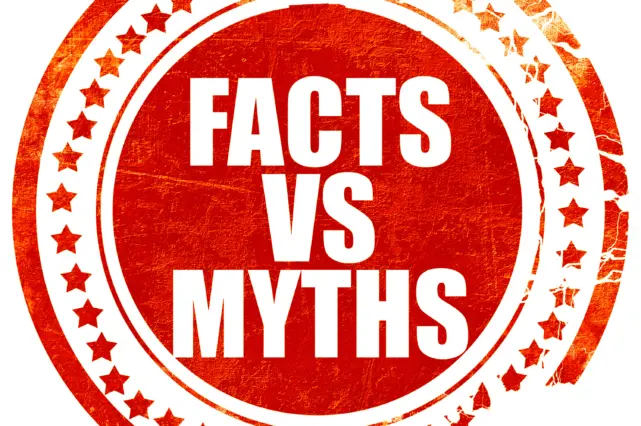
MYTH 1: TURNING OFF YOUR HVAC WHEN YOU'RE AT WORK IS BAD/GOOD
This is possibly the toughest myth because it can be either true or false depending on where you live, the temperature you like, the efficiency of your system and your home's insulation.
The basis of this debate is that:
- You turn off your heat pump, furnace or AC when you leave for work
- The inside temperature rises/falls throughout the day
- You turn your system back on when you get home, and your HVAC system runs much longer to get your home to the temperature you want
The argument is you would have spent less energy had you just turned up your heat pump three degrees when you left for work. Shorter bursts of cooling throughout the day would require less energy than the long, continuous operation required to drop the temperature to where you want it when you get home.
Whether this holds true for your system really depends on what you think is comfortable, how much heated or cooled air leaks out of your home throughout the day and the efficiency of your HVAC system.
If the temperature in your home only changes a few degrees while you're at work, chances are it'll use less energy to leave it off for the day. If the temperature in your home goes up 10 or 15 degrees, it might be more efficient to knock the thermostat up a few degrees and leave it on.
The best thing to do is test this yourself if you have a smart thermostat. You should be able to get reports on energy use and cycles through your thermostat. Turn your HVAC system off one day then leave it on at a slightly elevated temperature the next day and see what it says.
MYTH 2: CEILING FANS HELP COOL YOUR HOME
This is false, ceilings fans just circulate the air. The air movement results in a cooling sensation for people under the fans, but they don't actually change the temperature in a room. However, you may be able to comfortably leave your thermostat higher and use less energy when you're enjoying supplemental air circulation from ceiling fans. People with ceiling fans may end up using less energy overall if they combine ceiling fans with slightly higher thermostat temps during the summer.
MYTH 3: FILTERS LAST A LONG TIME
Whether this is a myth or just a convenient fantasy some people tell themselves is debatable. It is true that people frequently wait far too long before changing their filter, either because they forget or they don't realize how important it is. The frequency with which you need to change your filter can range from once a month to once every few months depending on:
- The quality of the filter
- The health of your household
- How important indoor air quality (IAQ) is to you
- Whether you have pets or smokers in the household
- How frequently you run your unit
MYTH 4: YOU SHOULD COVER YOUR HVAC CONDENSER UNIT TO PROTECT IT IN WINTER
This is false. The outdoor part of your HVAC system needs to be open to the air to operate effectively. Covering it can also make it an ideal home for rodents or moisture. Moisture that's trapped inside under a cover could lead to mold. HVAC systems are designed to weather rain and snow, so you don't have to worry about it being damaged by the elements.
MYTH 5: BIGGER HVAC UNITS ARE BETTER
Having a properly sized unit is better than having an oversized HVAC system from an efficiency and performance standpoint. Oversized HVAC systems will cycle on and off more frequently, which can be annoying and is unnecessary for effective temperature control. Excess humidity can also be an issue as water might not condense on the coils properly if a unit is oversized. Working with a knowledgeable HVAC system designer on any new HVAC installation or replacement jobs is the best way to make sure you're getting a properly sized system.
MYTH 6: DROPPING YOUR THERMOSTAT WAY DOWN WILL COOL YOUR HOME FASTER
HVAC systems usually run at one rate. Your home will cool down at the same rate whether you lower the temperature five degrees or 10 degrees – it'll just run twice as long if you turn it down 10 degrees. Some ductless units may function a bit different, but if you have a traditional HVAC system you won't cool things down any faster by setting the thermostat below where you actually want it.
MYTH 7: YOUR SYSTEM WILL LAST LONGER IF YOU USE IT SPARINGLY
No – the 15-year average lifespan of an HVAC system is the same regardless of whether or not you use it frequently. The biggest factor in how long your HVAC system will last is your decision on whether or not to get regular maintenance.
If you want to make sure your HVAC system lasts as long as possible, join the Vito VIP Club. In addition to discounts on repairs you'll also get two HVAC inspections and one plumbing inspection every year. Signing up for an HVAC maintenance plan is one of the best ways to maximize the longevity of your HVAC system and maintain your system's manufacturer warranty.
Call us at 866-792-7154 to learn more about our maintenance, repair and AC installation services.








